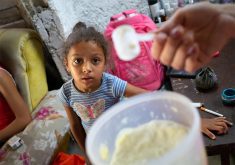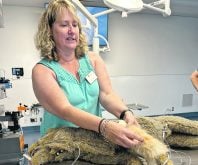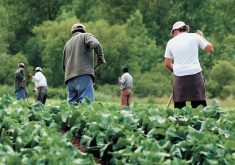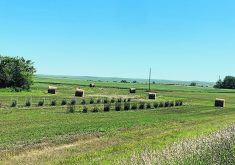Food is not a likely source or route of transmission for COVID-19, the Canadian Food Inspection Agency says.
No cases of the illness have been reported in connection with food or food packaging, it said in a Sept. 14 news release.
As well, the agency confirmed that domestic poultry and pigs do not pose a risk of transmitting the virus.
“Susceptibility studies led by CFIA scientists on domestic turkeys, chickens and pigs confirmed that these animals do not spread SARS-CoV-2, the virus that causes the COVID-19 disease, to humans, animals or the environment,” the CFIA said.
Read Also

Farming Smarter receives financial boost from Alberta government for potato research
Farming Smarter near Lethbridge got a boost to its research equipment, thanks to the Alberta government’s increase in funding for research associations.
“CFIA scientists demonstrated that SARS-CoV-2 does not replicate in domestic turkeys and chicken and replicates poorly in domestic swine under laboratory conditions. The studies also showed that these animals did not carry the virus in their tissues used for human consumption.”
It cited a study posted on the Authorea website as a sourse for the poultry data. An abstract from that study said turkeys and chickens were inoculated with the virus and did not develop disease or antibodies in response. COVID-19 was not detected in any swabs or tissues from the birds, nor from inoculated chicken embryos and egg yolks.
“SARS-COV-2 virus does not affect both turkeys and chickens in the current genetic state and does not pose any potential risk to establish in both species of domestic poultry,” the abstract states.
For the swine data, the CVIA cited a study posted on the bioRxiv site, described as a preprint server for biology.
An abstract of that study, which has not been certified by peer review, said pigs inoculated with the virus were susceptible to infection at low levels.
Some of the inoculated pigs later developed antibodies to the virus, which study authors said highlighted “the need for additional livestock assessment to better determine the potential role domestic animals may contribute towards the SARS-CoV-2 pandemic.”

















